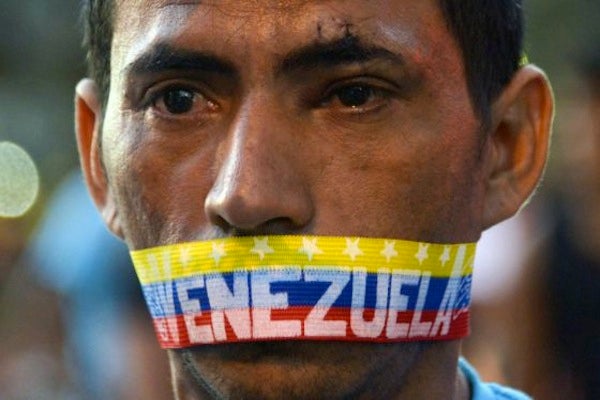The coastal communities of Lake Maracaibo and the Gulf of Coro suffered the greatest impact of oil spills registered in Venezuela between July and December 2023.
In January 2024, the Venezuelan Observatory of Environmental Human Rights (Ovdha) presented its most recent report tracking the occurrence of oil spills in Venezuela.
According to the document, which collected information published in the media and social networks or denounced by specialists, at least 35 oil spills were recorded in the second half of 2023 in four Venezuelan states: Zulia, Falcón, Anzoátegui and Carabobo. Twenty of the incidents occurred in the state of Zulia and 11 in Falcón, in western Venezuela, while four other spills affected the eastern state of Anzoátegui (3) and the central state of Carabobo (1), according to the record kept by the Observatory belonging to the Venezuelan environmental organization Clima21.
“There is no improvement”
The Observatory had documented 44 oil spills in the first half of 2023, for a total of 79 incidents during 2023. The figure is similar to that of 2022 when 81 cases of oil spills were documented.
Although the figure does not correspond to the actual number of spills that have occurred in Venezuela, they reflect the incidents reported in the media, social networks or by volunteers. Clima21 warns that “the situation remains unchanged and there is no improvement despite recent declarations by the national authorities.”
In every case, the State-run oil company Petróleos de Venezuela (Pdvsa) failed to provide sufficient information regarding the spills, their causes and the nature of the spilled oil.
In August 2023, the Venezuelan Minister of Petroleum, Pedro Tellechea, stated that the number of spills so far in 2023 was “almost zero” in Lake Maracaibo, a month after the Minister of Ecosocialism assured that the waterbody had a “healthy ecosystem and was not in emergency due to pollution.”
Health problems reported after oil spills
Between July and December 2023, Clima21 documented different human health problems derived from spills and the general pollution of the coasts, including respiratory and skin diseases, mainly attributable to the contact of oil with the skin, and symptoms such as headaches, vomiting and diarrhea.
No information is available on the effectiveness of government actions to remedy the situation
The environmental human rights organization recalled that in 2023 the administration of Nicolás Maduro had announced a Decontamination Plan for Lake Maracaibo, followed by a series of meetings, statements and cleanup days.
However, “so far there is no evaluation of the progress and effectiveness of these measures.”
The same occurs in the state of Falcón, where fishermen have denounced “the failure to clean up the Gulf of Coro and the lack of action on the part of PDVSA to prevent and control oil spills.”
The report
A total of 35 oil spills were recorded in the second half of 2023. This number adds up to the 44 cases documented in the previous half for a total of 79 incidents recorded in the entire year. A similar number had been documented in 2022 (81 cases). A significant number are ongoing spills or spills and leaks in places where other incidents had already occurred without any measure being taken to address their causes.
The most affected states during this period were Zulia and Falcón and to a lesser extent the states of Anzoátegui and Carabobo. This contrasts with the information provided in July by the Minister for Ecosocialism who assured that Lake Maracaibo was not in emergency due to pollution. Similarly, the minister of oil stated in August that “almost zero” spills had been recorded so far in 2023 in that body of water. However, in late June the Venezuelan President had announced a plan to decontaminate the lake.
As in the past, the State-run oil company PDVSA failed to provide adequate information about the causes, nature of the spilled oil or any other details of the incidents. An exception was the case of a spill from the El Palito refinery when the company indicated that the overflowing of an effluent treatment lagoon resulting from heavy rains in the area had been the cause of the incident.
These emergencies pose a serious environmental hazard and damage to people and communities that live in the affected areas. Despite this, in none of the cases does an evaluation of the damage caused by the spill appear to have been carried out, nor did the companies involved assume any responsibility for the harm. No investigation is known to have been opened into the responsibility for the incidents or about possible sanctions for those responsible by action or omission. In some cases, the company promised to compensate the people affected by the spills, but there is no information that this promise has materialized. Likewise, a pattern of constant denial of information and obstruction of the work of the media persists in environmental matters in Venezuela.
Translated by José Rafael Medina




